5. Heat
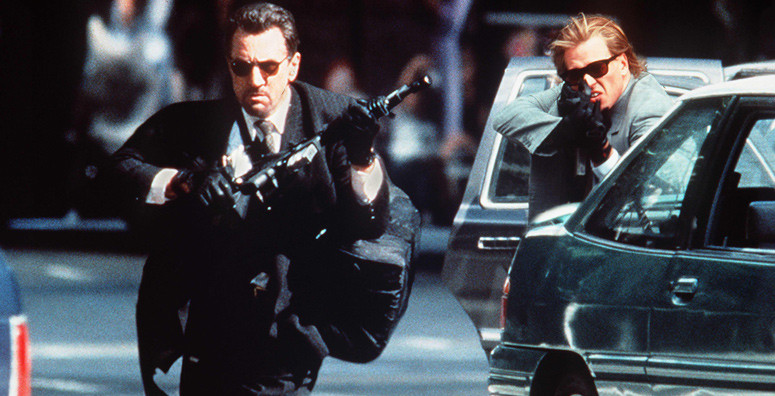
There is a longstanding tradition of directors remaking their own films; Alfred Hitchcock with “The Man Who Knew Too Much” (1934 and 1956), Yasujirō Ozu with “A Story of Floating Weeds” (1934 and 1959), and in this case, Michael Mann remade his own 1989 TV film “L.A. Takedown” into the awesome crime thriller most know as “Heat” (1995), featuring Robert DeNiro, Al Pacino and Val Kilmer.
The facts here are pretty straightforward; Mann was supposed to make a crime series in the late 80s, which eventually turned into a 90-minute TV movie. Remaking it six years later, after gaining fame for “Last of the Mohicans” (1992), gave Mann the opportunity to make it the way he really wanted.
With better actors, a more complex story (to match the longer runtime), an original score, and better production value, as well as a more developed sense of cinematography, Mann had the luck and the talent to see the realisation of his small-screen movie evolve to a genre-defining A-list blockbuster that’s come to be known as one of the best crime-thrillers of all time.
4. 12 Monkeys
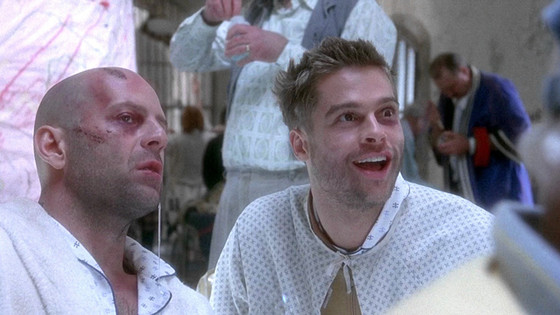
Terry Gilliam’s brilliant 1995 film “12 Monkeys” is often hailed as one of the greatest science fiction films of all time. And it is. However thinking that Gilliam came up with the film by himself would be a fallacy, as it is in fact based on the French “photo-novel” – a series of still pictures accompanied by sound – by Chris Marker called “La Jetée” (1962).
Both titles are fascinating to watch. “La Jetée” is a dark, emotional, and inventive post-nuclear apocalypse time-travel short. Considering the half-hour runtime, and what Marker achieves using only still image and sound, is what makes the project so mesmerising. Brimming with creativity and a quiet beauty, it’s an absolutely wonderful watch.
Gilliam – aided by the fantastic script written by David and Janet Peoples – then perfectly captures the spirit, tone, and surrealistic atmosphere of the original and expands it on every level, while simultaneously making it his own (as Gilliam does so wonderfully) in “12 Monkeys”.
Jarring cinematography; classic retro-futuristic set pieces and props; electric editing; great performances from Bruce Willis and Brad Pitt as James Cole (adult) and Jeffrey Goines, respectively; and the mind-bending script are what make this remake so amazing to watch.
BONUS: The 1995 film has more recently spawned a television series also called “12 Monkeys” (2015).
3. Scent of a Woman
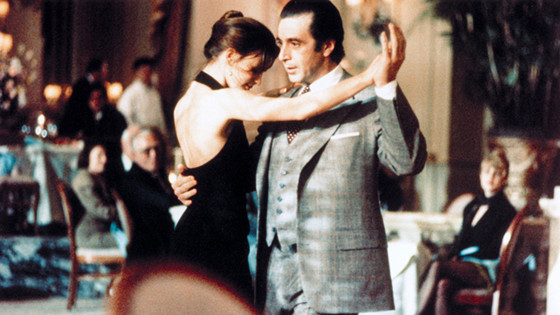
Another American-remade European (Italian) film was Dino Risi’s 1974 “Profumo di Donna”, based on the novel “Il Buio e il Miele” (1969) by Giovanni Arpino, and remade by Martin Brest (“Meet Joe Black”) in 1992 as “Scent of a Woman”. The two films, however, share close to nothing in common.
The 1974 version is a much smaller, darker, and barer film than its 1992 counterpart, which has almost completely changed the nature of the movie, making it more about Charlie (Chris O’Donnell playing the counterpart of Giovanni in the Italian version, played by Alessandro Momo), and adding a whole new plotline involving a prank gone awry and a mean, stuffy headmaster, Mr Trask (James Rebhorn).
Although hampered by a few clichés left and right, the remake still succeeds at tugging the audience’s heartstrings; from the driving and dance sequences to the “I’m in the dark” speech and the final trial, there is a true emotional rollercoaster, mostly provided by Al Pacino as Lt. Colonel Frank Slade, giving an award-winning performance, much like his predecessor Vittorio Gassman as Captain Fausto Consolo.
2. Airplane!
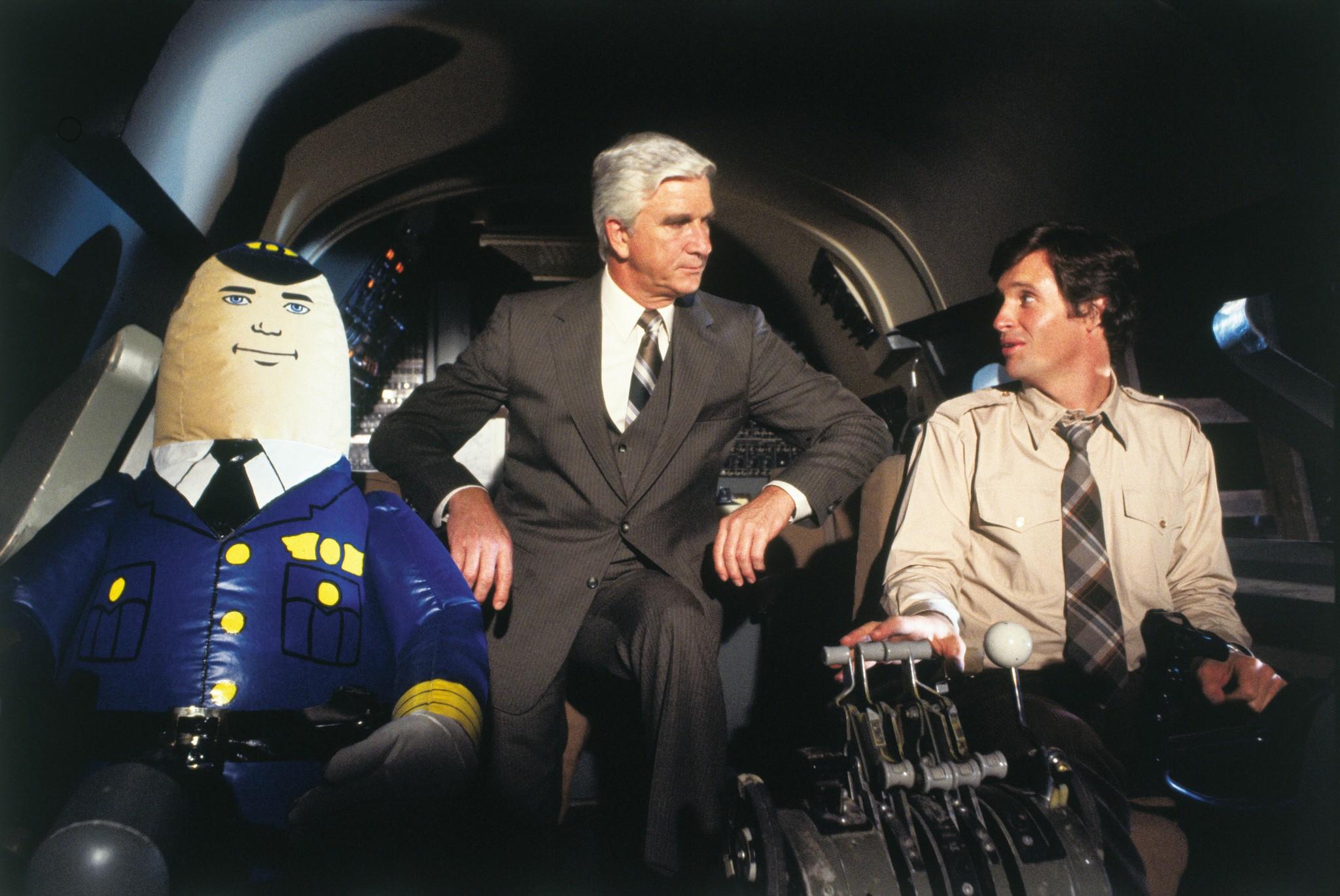
The brilliant 1980 comedy film “Airplane!”, written and directed by Jim Abrahams and David and Jerry Zucker, is in many ways a remake of both “Zero Hour!” (1957) and “Airport 1975” (1974), as it satirises many elements of these genre films – often taking almost entire scenes from the films and injecting them with brilliant satire and some of the best comedic wordplay ever put to the silver screen.
The way the writers/directors exploited the different weaknesses of these disaster films to their own hilarious advantage is an absolute gift to the audience and redefined parody films as we know it, as the movie is now deemed as a masterpiece of comedy cinema.
1. Ocean’s Eleven
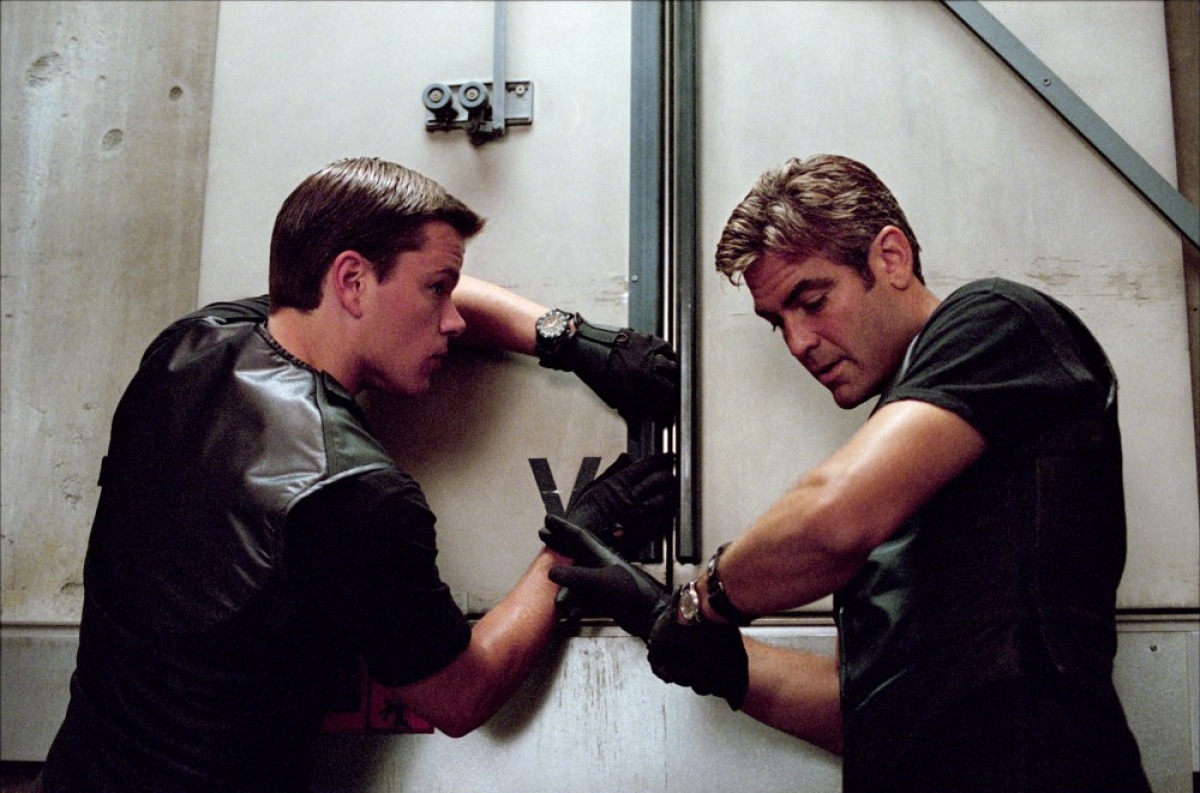
Steven Soderbergh’s 2001 heist film “Ocean’s Eleven” was so popular upon its release it could easily be hailed a contemporary classic (if not at least within its genre). With a rock solid script (by Ted Griffin) delivering witticism after witticism, well-written characters backed by a great cast, a satisfyingly intricate plot, and a high suspension-of-disbelief factor that owns up to itself, the film enjoys the fact that it’s made purely for fun.
This in fact perfectly reflects the light-hearted spirit of the now much-forgotten 1960 film “Ocean’s 11”, directed by Lewis Milestone (“All Quiet On The Western Front”), written by Harry Brown and Charles Lederer (“His Girl Friday”), and starring the infamous Rat Pack – consisting of Frank Sinatra, Dean Martin, and Sammy Davis, Jr., among others.
However, much to the audience’s disadvantage, all the great talent behind the 1960 film – the star-power and creative team – somehow do not come together properly, leaving behind a slight mess of a film.
The coordination between the script and the cinematography is off; the nonchalant banter delivered by the star-studded cast is endearing, but it simply isn’t enough to save the film from the disappointingly simple heist; the sub-plots are forgotten (whatever happened to Tony Bergdorf’s [Richard Conte] son?), and it has a grossly lacklustre payoff.
Thankfully, another talented artist saw potential in a film that hadn’t fulfilled its own, and brought a new vision to it – precisely what a remake should do.
Author Bio: Luka Simić is of serbo-croatian descent, born in Paris, and ultimately a citizen of the world. Currently living in Brussels, most of his time is spent writing and directing films, and his free time is spent on filmosophy and writing critiques for television series and movies.